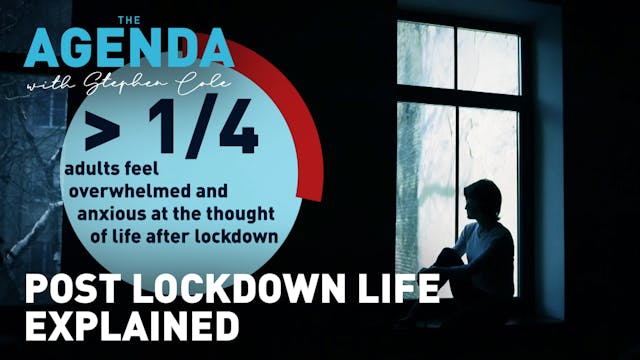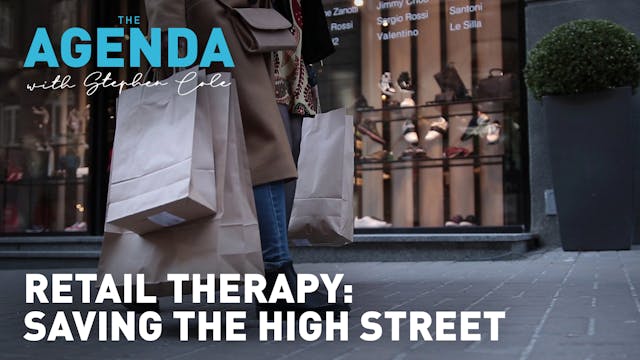LIFE AFTER LOCKDOWN - The Agenda with Stephen Cole
The Agenda
•
29m
We isolated at home, sacrificed time with our friends and family, kept socially distanced in streets and remained masked up, but with vaccinations galore around the globe some countries are beginning to ‘unlock’.
Dubbed ‘Freedom Day’, England has become one of the first places to ease all restrictions. Masks are now mostly optional, the two-metre rule has been dropped and there are no limits on the number of people gathering – but the world awaiting them is one almost unrecognisable when compared with the one we knew pre-pandemic.
So, what does the so-called ‘new normal’ look like? Are we ready to brave the outdoors again? And which trends prompted by the pandemic will survive the test of time?
To discuss the anxiety surrounding the return to our old ways, The Agenda’s Stephen Cole is Nadia Svirydzenka, Senior Lecturer in Psychology at De Montford University and therapist Anjali Singh-Mitter who specialises in helping children to be resilient when their parents are facing various stresses in life.
Nadia tells The Agenda’s Stephen Cole that it is important for people to go through their own individual ‘unlocking’ at a pace they’re most comfortable with, while – interestingly - Anjali says that, from her own experience as a therapist, children seem to be coping with the ever-changing world of Covid far better than adults.
Retail and brand expert Mark Pilkington explains how the pandemic has resulted in “10 years’ worth of development in just a few short months,” with companies becoming more customer-focused and innovative. Naturally, the online-shopping boom saw increased convenience through features like digital dressing rooms, but Mark believes that as people can now attend events and have reasons to dress up, there is still a hunger for a high street, but one with more unique social settings with pop-up shops and original produce.
Nadia Pendleton, former Duty Manager at Gordon Ramsay Holdings and a Hospitality Consultant of 17 years joins Stephen to discuss which trends will stay, and which will go. Nadia believes that some customers will still opt for having fresh boxed ingredients delivered which they then cook themselves at home, but most will want to be back in sociable spaces after saving money during lockdowns. She also discusses the “absolute crisis” of staff shortages facing the sector and how hospitality is expected to make itself a more appealing place to work as the hospitality hiatus eases around parts of Europe.
Learn more on #TheAgenda at:
https://www.cgtn.com/europe/the-agenda 📲
Follow CGTN Europe on social media and other platforms👇🏼
https://stories.cgtneurope.tv/follow-cgtn-europe/index.html
Up Next in The Agenda
-
Is the world ready to leave lockdown ...
As some countries proceed with lifting lockdown restrictions - dubbed ‘Freedom Day’ in the UK – many have joyfully rushed back to restaurants and shops.
But after more than a year of developing new habits to protect ourselves from Covid and becoming accustomed to a precautionary state, not everyo... -
How lockdowns improved the hospitalit...
WHAT’S THE ISSUE?
Hospitality has by no means escaped the economic hardship caused by the pandemic. In fact, some say it was the sector worst hit. Hotels, restaurants and bars have all had to rethink the way they operate to become compatible with this post-Covid world. So how have they been adapt... -
RETAIL THERAPY: Saving the high stree...
WHAT’S THE ISSUE?
The changes forced on the retail industry go far beyond one-way systems and limited capacity in shops. Naturally, the online-shopping boom saw increased convenience through features like digital dressing rooms, as well as extending returns as uncertainty continued.
Covid has exc...



